By Badr Bally
There was some discourse recently regarding certain scenes in The CW’s “Superman & Lois”. The scenes in question involve Superman openly stating that he’s not going to give his full, unquestioned commitment to the US government stating that he’s gave his “allegiance to the world a long time ago”.
The reaction to this was divisive and, though the discourse regarding this waned, there is still rumblings regarding this, with one side arguing that this goes against the image of Superman as an American icon, while the other argued that this makes sense considering Superman is a global icon.
The first group see this as corporations trying to distance Superman from his Americana roots especially in the wake of DC Comics replacing Superman’s iconic “Truth, Justice and The American Way” slogan with “Truth, Justice and a Better Tomorrow”. To them, this is a betrayal of Superman as an icon of American popular culture.
The other group, however, argues that this is simply acknowledging Superman as a figure with a universal appeal. Due to the character’s popularity worldwide, centering more on Superman as a global figure makes a lot more sense than portraying him as an American icon.
Both takes are somewhat valid but are also oversimplifying Superman’s legacy and appeal.
The reality is, Superman is both.
No matter who says otherwise, a huge part of Superman’s DNA is connected to his Americana roots. Raised as Clark Kent, he grew up within the heartland of America, specifically Kansas, in the form of the fictional town of Smallville, where young Clark was raised on the values taught by the Kents who raised the orphaned child as their own.
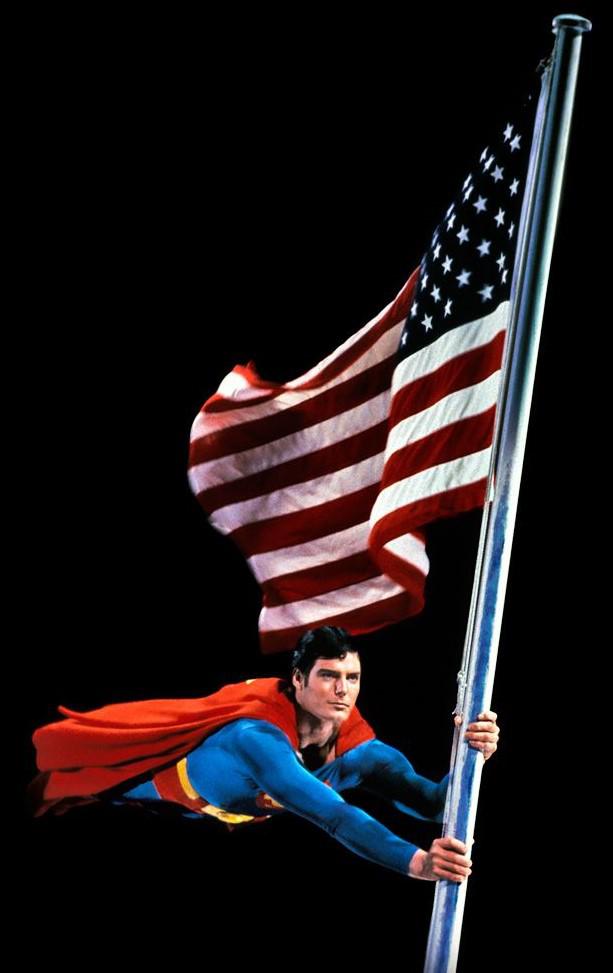
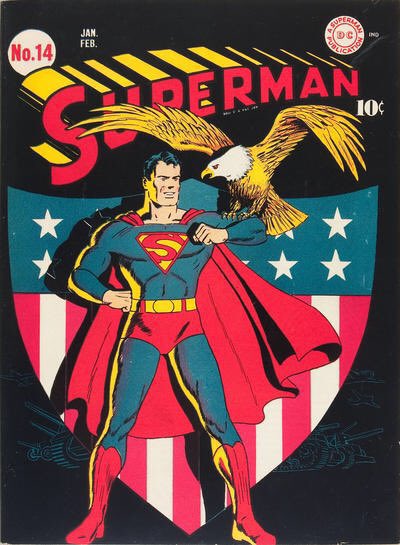
However, his connection to the “American Way” has a more meta connection. His creators, Jerry Siegel and Joe Shuster, were obviously influenced by the fact they were children of Jewish immigrants when crafting the story of this “strange visitor from another planet,” which makes Superman into the “Ultimate Immigrant” story, especially within American culture. What’s not as commonly known is that, according to several sources, both Siegel and Shuster were supporters of then President Franklin D. Roosevelt and had strong faith in his “New Deal” plan and how it would lead to social reforms and fix many issues caused by systematic injustice, particularly after the effects of the Great Depression. So, several studies believe that the early stories of the Golden Age Superman, referred early on as a “Champion of the Oppressed,” where he took on corrupt businessmen, politicians and war profiteers, was the result of the duo injecting their social views and their faith in the New Deal through the character. Comic book scholar Roger Sabin sees this as a reflection of “the liberal idealism of Franklin Roosevelt’s New Deal,” with Shuster and Siegel initially portraying Superman as champion to a variety of social causes occurring in America at that time.

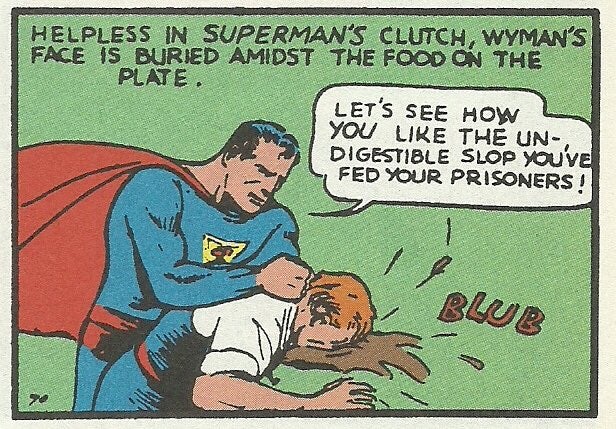
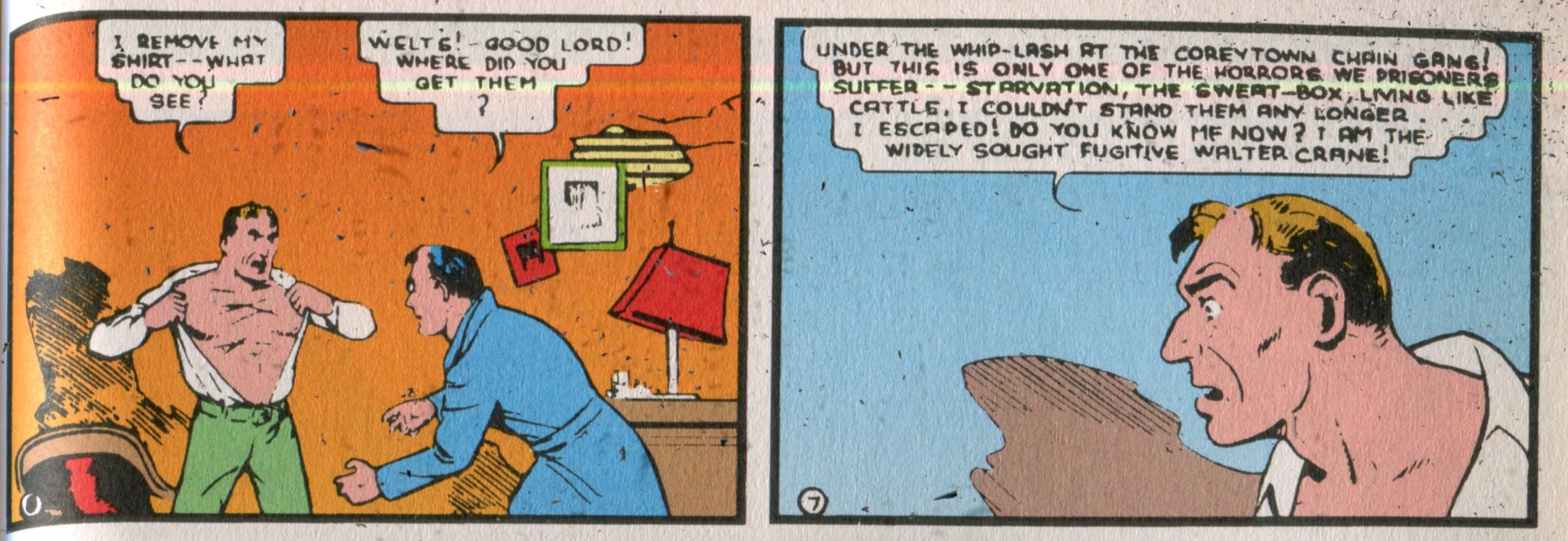
During World War II, Superman was one of the fictional characters, along with Bugs Bunny and Popeye, who enlisted to serve as morale for American citizens and troops during that period. Many of his adventures dealt with him taking on the Nazi threat, mostly dealing with saboteurs and spies back home. It was also the period when the iconic “Truth, Justice and The American Way” slogan was first introduced on the airwaves of the classic Superman radio series with Superman voiced by Bud Collyer, as a way to support the efforts of US troops during the war.
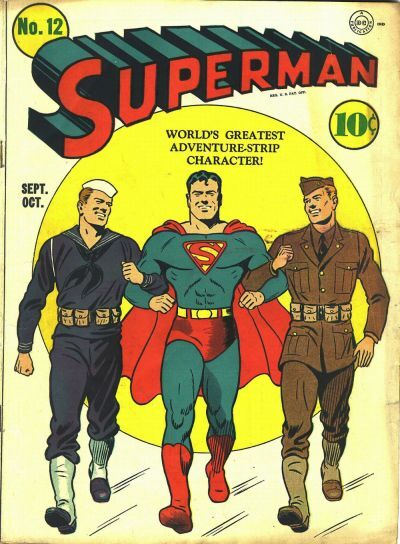
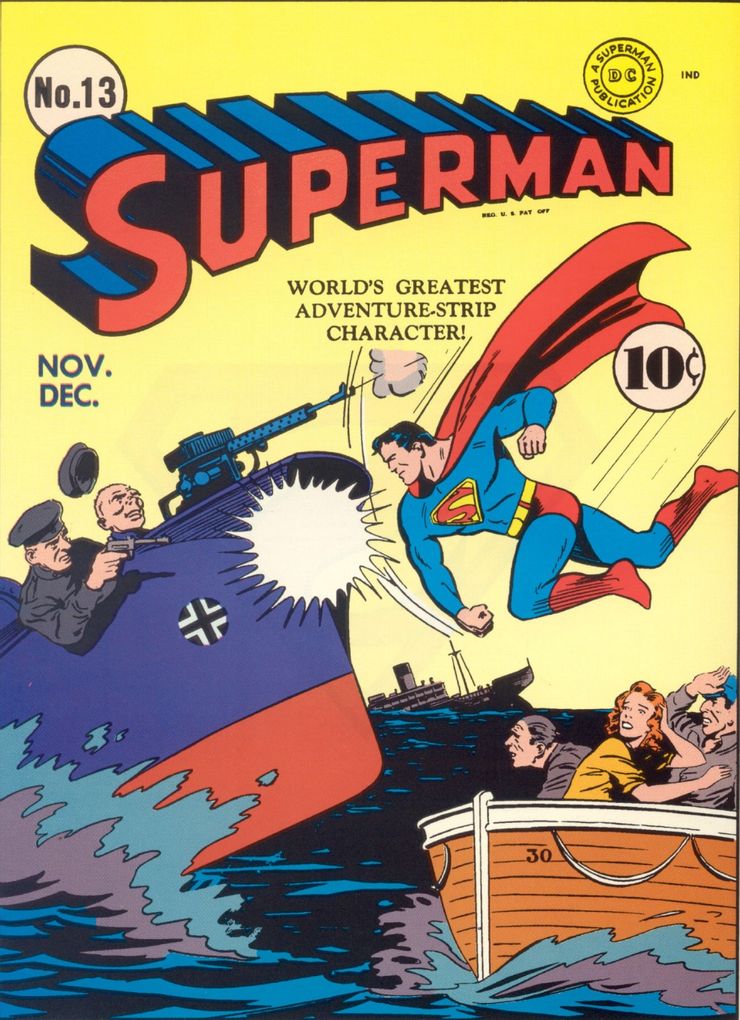
Though the slogan was dropped from the radio series once the war ended, it was brought back in the “Adventures of Superman” TV series starring George Reeves as the Man of Steel, popularizing the slogan to TV viewers before being immortalized to cinema goers after Christopher Reeve’s Superman uttered the phrase in the famous balcony scene from 1978’s “Superman: The Movie”.
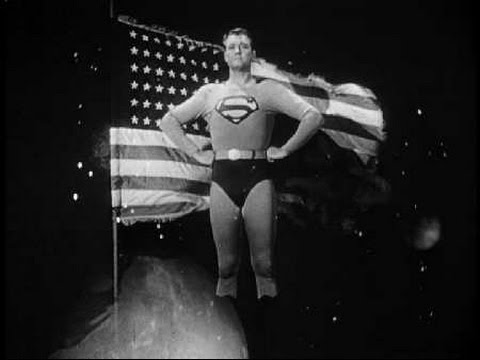
Throughout the comic books and other mediums, Superman has shown to be patriotic and have national pride in his country. However, Superman has gone against the government’s wishes in the comic books for decades and has rejected the notion that he blindly follows the government’s orders. Being patriotic doesn’t mean you turn a blind eye when your government crosses the line.
There are a number of examples where Superman just said no to the US government, sadly the most well-known example of this was David S. Goyer’s contribution to the then milestone “Action Comics #900” issue. (Yes, the same David S. Goyer who worked on films like “Dark City,” the Nolan “Batman” trilogy, and “Man of Steel”). In Goyer’s short story “The Incident”, Superman renounces his US citizenship firmly stating that, Truth, Justice and The American Way is not enough anymore. Personally, I feel that Goyer was trying too hard to subvert the “Champion of the American status quo” image the character had hanging over his head for many years. Personally I think we have better examples of this idea in stories written decades prior.
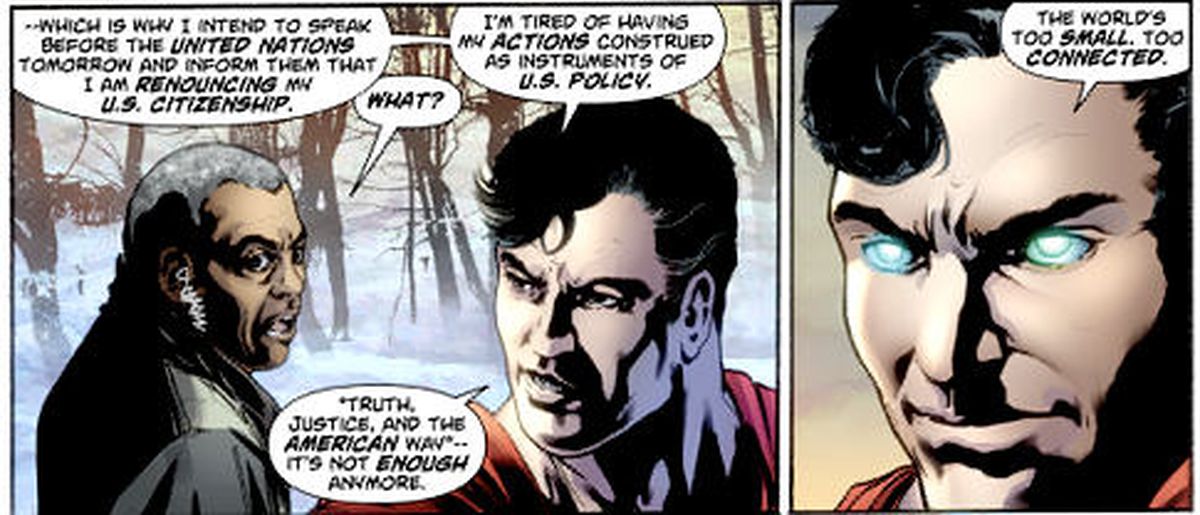
One such story was from the March 1991 issue of “Superman,” where Superman was asked by the US government to help escort a Middle Eastern dictator so he would stand trial for his crimes. During the story Superman uncovers a secret conspiracy involving shady dealings and a group of American nationalist zealots. This issue is a classic example that show’s Superman isn’t some government stooge who would blindly follow orders as he felt uneasy dealing with a sensitive task that involves international relations and by the end gives a good talking down to the government’s representatives after what occurred in the story.

Simply put, Superman is proud to be an American, however he also views himself as a citizen of the world, willing to help out in any way he can regardless of political boundaries, even those set up by his own government.
Superman has broken through these boundaries outside the comic books as well, as the character continues to have a massive appeal and awareness around the world. Superman has gained fans the world over, from a young kid buying a comic or merchandise with Superman’s S logo on it, to major comic book and media figures in their respective countries, such as Japan’s Osamu Tezuka (the Godfather of Manga and Anime and creator of Astro Boy), who viewed the character as a major influence and at one point was made honorary member of the Japanese Superman Fan Club. Superman also gained a following from figures outside of media, such Emperor Hirohito of Japan, who was such a fan of the “Adventures of Superman” TV series that he sent actor George Reeves a fan letter in 1958.
Superman is a global icon.
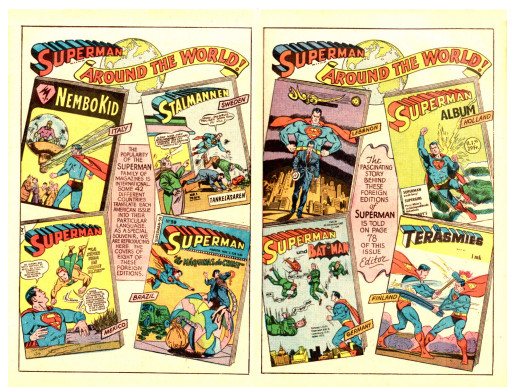

A global icon to my definition is someone who has an international appeal regardless of nationality, and that fits Superman perfectly. Even people from many developing countries are at least familiar with the concept of Superman, growing up in Egypt during the 1990s, I can confirm that even taxi drivers and porters were at least familiar with the character. The same thing applies to other fictional characters like Batman, Spider-Man, Sherlock Holmes, James Bond, Goku and Tintin. They’re icons of their respective countries but have also become universal icons due to their international appeal.
I think DC themselves realized this, during the Silver Age one issue featured the United Nations awarding Superman with honorary citizenship of every UN registered nation. This scene was revisited again in the Bronze Age by writer Elliot S! Maggin and artist Curt Swan, in a panel that most people are familiar with whenever this bit of trivia is brought up among Superman fandom.
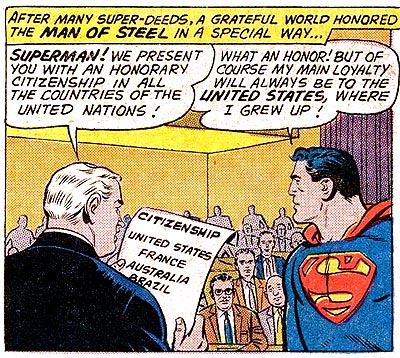
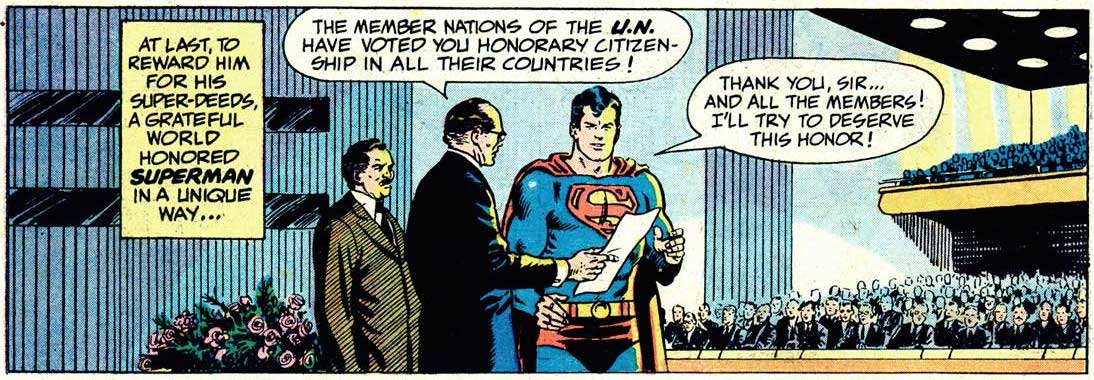
This might also explain why the “Truth, Justice and The American Way” slogan has been either referenced less or had attempts to change it over the years. It would be referenced a number of times but not as frequently, there were also different variations of the slogan such as “Truth, Justice and Peace” that was used in the intro to the “Super Friends” cartoons or in 2006’s “Superman Returns,” which features a scene where Perry White asks if Superman still stands for “Truth, Justice and all that stuff,” which did receive some backlash for a while. And of course, there was the recent update to “Truth, Justice and a Better Tomorrow,” which caused a lot of discourse. This is seen as DC trying to downplay the Americana element of Superman to appeal to international audiences, ignoring the fact that the very same audience is already a fan of the character even when the “American Way” phrase was still prevalent.
So, the way I see it, Superman is both an American icon and a global icon. He is a long-standing icon of American pop culture, and Americana as a whole, but has also captured the hearts of people worldwide due to his universal appeal.
I would like to end this piece on this quote that I think sums up Superman perfectly:
“Superman is universal. There isn’t a country in the world that doesn’t know who Superman is… Because of the problems of today, the world’s in desperate need of a hero. Run for president Supey, because God knows we need you now.” – Richard Donner (“Look Up In The Sky! The Amazing Story of Superman”).
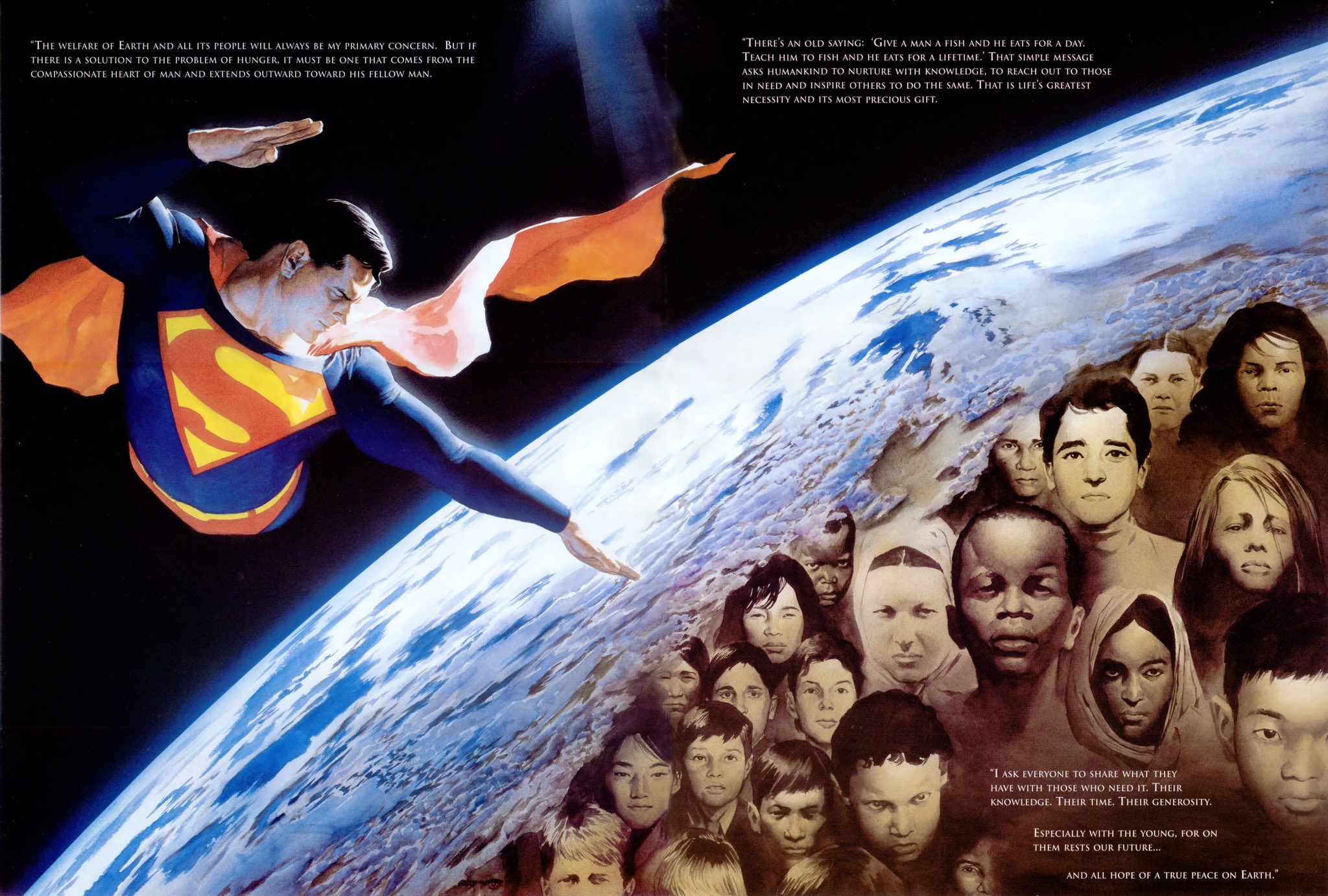


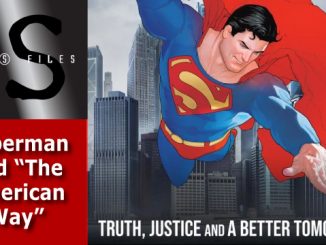
[…] Artículo realizado por Badr Bally de Superman Homepage […]
Can’t he be both? What we have here is the greatest Superhero that is known world wide, and helps protect everyone on the planet. And while he wasn’t born in America, Superman was still raised in America by his adoptive human parents the Kents and most likely raised with American values. I have to ask can’t he be both, because while he dose defend the Earth and helps all of its people, he still has American roots. To disregard “the American way” part of his slogan which was established decades ago, would in my own opinion be a disservice to… Read more »
Superman is an American icon. Contort as you might, it’s an inescapable fact. What’s unfortunate is that some what to place their dislike of governmental policies by the States at Superman’s feet. Being for everyone doesn’t make you less American, and so being a global icon which he isn’t, doesn’t negate his American iconism. Superman is recognized globally, but other countries have their own icons, and Superman isn’t one of them. The idea that distancing Superman from the American government will make him more palatable to the world is laughable, as the rest of the world doesn’t care. They already… Read more »
I don’t think I “contorted” anything, I think I was very straight forward explaining why I think Superman is both an American icon and a global icon.